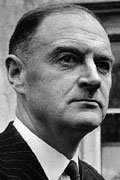Liam Cosgrave was born in the family of W.T. Cosgrave, who served as the President of the Executive Council of the Irish Free State from 1922-1932. He was educated at Castlenock College, Dublin, and King's Inns and was called to the Bar in 1943. Cosgrave was first elected to the Dáil Éireann in 1948 as a Fine Gael representative and for the rest of his career never lost an election. He served as a parliamentary secretary from 1948-1951, and became Minister for External Affairs (19541957) in the Cabinet of John Costello. Following the resignation of James Dillon, Cosgrave became leader of the Fine Gael party (1965). The Fine Gael and Labour parties narrowly won the General Election in 1973 and formed a coalition government, ending 16 years of Fianna Fáil rule, with Cosgrave becoming Taoiseach 41 years after his father had lost office to Eamon de Valera. During his first year in power, Cosgrave held the negotiations with the British government of Edward Heath and a number of the Northern Ireland parties which culminated in the Sunningdale Agreement. This provided for a power-sharing Executive in the North and a Council of Ireland. However, the former was to collapse within six months while the latter never came into reality. On 17 May 1974, 34 people were killed by bombs in Dublin and Monaghan and on 21 July 1976 the British ambassador, Christopher Ewart-Biggs, and his secretary were murdered outside the embassy residence near Dublin. The Taoiseach did not hesitate to seek and enforce the powers he felt were necessary to cope with such violence. The coalition parties conducted a lackluster campaign in the 1977 General Election, and Fianna Fáil won 84 seats in the Dáil. Jack Lynch formed a Fianna Fáil government with the largest majority since independence. Cosgrave resigned as leader of Fine Gael and retired from the Dáil in 1981 taking little further part in political life. Biography source: [2] |

